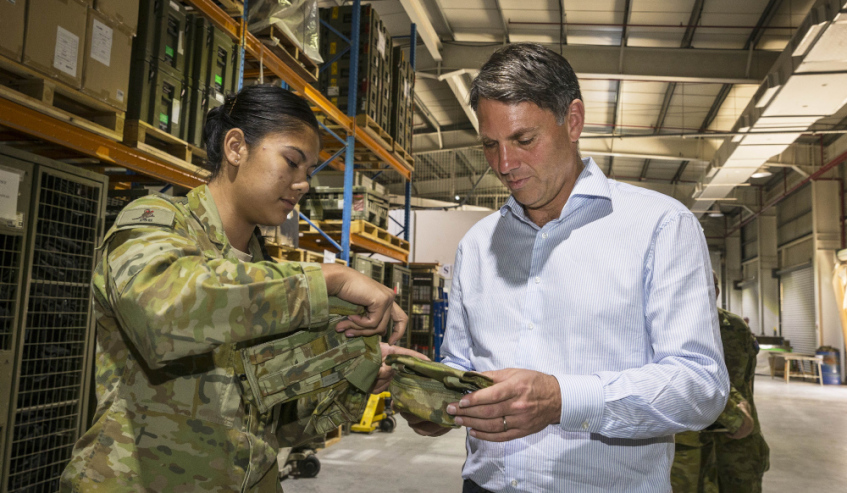Shadow defence minister Richard Marles has slammed the government for failing to "develop a proper rationale for an Australian defence industry" in the wake of the Offshore Patrol Vessels (OPV) project.
Minister Marles will today give a speech to the National Press Club regarding the exclusion of Austal in a design capacity on the SEA 1180 OPV project having hindered the development of an Australian naval export industry.
Austal, which was in a joint bid with Fassmer and would have seen a large bulk of the design capability done in Australia, is currently in negotiations with winning designer, Germany's Lürssen, to be included in the build of the vessels, as per the government's request.
The shadow defence minister will argue that the Australian shipbuilder, which has designed and built ships for Australia, Egypt, Oman and the United States, is one victim of the government failing to incorporate Australia's defence industry in tender arrangements for future projects.
"For all its abilities and deficiencies the design house at Austal in Henderson is the only significant naval design house in Australia," Minister Marles said.
"The failure of the government to develop a proper rationale for an Australian defence industry and its corresponding inability to bring the defence community along with it can be seen in the recent decision about the building of the Navy’s next generation of Offshore Patrol Vessels (OPVs)."
Marles will say that while developing an export based defence industry must be the long-term goal if the industry is to survive, Australia's existing capabilities should have been leveraged in the OPV project, as well as the Future Frigates.
"The best opportunity to do this is by leveraging the domestic capability which is developed through the building of equipment for the ADF," said Marles. "Making sure we get the key procurement decisions right, from the perspective of the Australian defence industry, is therefore essential if we are to develop that industry. But this is unlikely to happen if the development of our national defence industry is not a clear goal in the procurement process."
The OPV project is widely regarded as the upcoming naval project most likely to deliver potential export success. Kim Gillis, the deputy secretary of CASG, recently said during Senate Estimates "that class of vessel is very in-demand from a range of navies around the world, and the export of those size vessels is far more likely than much larger combatant vessels."
Marles will argue that the decision has failed to provide Australian industry with an export based business, given the design of naval vessels "is where the intellectual property of the vessel exists" and "is where true ownership of the ship lives."
"I am not in a position and certainly do not have the expertise to assess which bid provided the better option for the navy. I can only assume, given the government’s decision, that the answer to this question is that the Lürssen design was the better boat," he will say.
"But the consequence of this decision is that there will be no Australian, or even part Australian, design of the next OPV which could have been the foundation for the development of an Australian vessel which could be sold to the world. If we assume that Lürssen did design the better boat then in the making of this decision Navy capability trumped the development of Australian defence industry capability."
The shadow defence minister will also caution the ramifications of the decision could see Australia lose one its largest and most successful defence stories, likening the loss to the collapse of Australia's automotive industry.
"The decision has left Austal in a quandary. It can win naval design work abroad, including in the US, but not in Australia. It can build huge commercial ferries for export in Fremantle, as it is doing today, but also has the option to build them in its facility in the Philippines. Its future in Australia looks uncertain. And given its unique status as the one Australian defence industry company which resembles the profile of the global defence industry primes, to lose it would be a disaster," he will tell the National Press Club.
"This government stood by and watched the loss of the car industry. Despite all the defence industry hoopla, were it to lose Austal, along with the thousands of shipbuilding jobs already lost, its defence industry scorecard would be grim."


